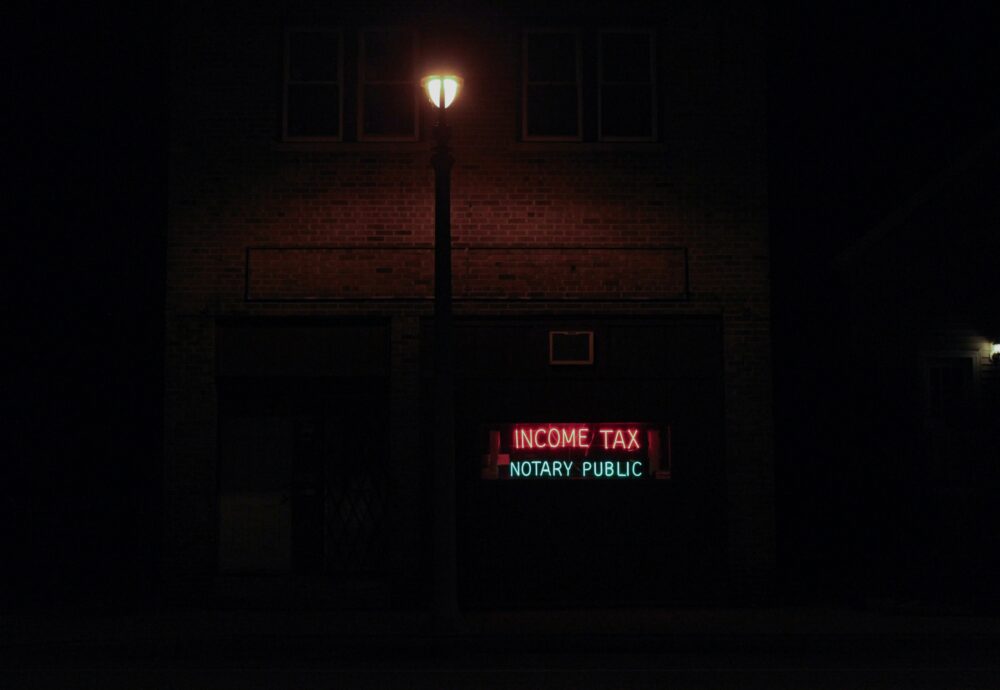The Supreme Courtroom dominated Friday that builders and residential builders in California could problem the charges generally imposed by cities and counties to pay for brand new roads, colleges, sewers and different public enhancements.
The justices mentioned these “affect charges” could also be unconstitutional if builders and builders are compelled to pay an unfair share of the price of public initiatives.
Builders have contended that limiting California’s excessive charges would result in the development of extra inexpensive new housing.
California state courts had blocked claims arising from “a growth affect payment imposed pursuant to a legislatively licensed payment program” for brand new growth in a metropolis or county.
However the 9-0 Supreme Courtroom determination opened the door for such challenges. The justices revived a constitutional declare introduced by an El Dorado County man who put a manufactured dwelling on a small lot and was instructed he must pay a “site visitors mitigation payment” of $23,420.
The choice may have large affect in California, since native governments have more and more relied on affect charges moderately than property taxes to pay for brand new initiatives.
However the justices didn’t spell out when such charges turn out to be unfair and unconstitutional.
Liberal Justices Sonia Sotomayor and Ketanji Brown Jackson mentioned they joined the bulk opinion in Sheetz vs. El Dorado County as a result of it merely permits such challenges.
In a separate opinion, conservative Justice Brett M. Kavanaugh mentioned he noticed advantage to the “widespread authorities observe of imposing allow situations, resembling affect charges, on new growth by means of affordable formulation or schedules that assess the affect of courses of growth moderately than the affect of particular parcels of property.”
State and county attorneys had made simply that argument. They mentioned it was fairer to impose a growth payment on all of the tons in an space.
However the justices nonetheless dominated that householders and builders could sue to problem these charges as an unconstitutional taking of their non-public property. The case will now return to the California courts.
The Pacific Authorized Basis in Sacramento hailed the ruling as a major victory for property rights.
“Holding constructing permits hostage in change for extreme growth charges is clearly extortion,” mentioned legal professional Paul Beard, who represented the El Dorado County home-owner. “We’re thrilled that the court docket agreed and put a cease to a blatant try and skirt the fifth Modification’s prohibition in opposition to taking non-public property with out simply compensation.”
Beard mentioned El Dorado County “failed to point out — and can’t present — that the payment is sufficiently associated and proportionate to the site visitors impacts” of his shopper’s “modest dwelling.”
The talk over growth charges is particularly related in California, the place native governments have more and more relied on the costs to finance parks, streets, colleges and different infrastructure and providers for the reason that 1978 passage of Proposition 13 restricted property tax revenues.
The charges have come underneath scrutiny in different circumstances as builders and others have blamed them for driving up the price of housing and for a large disparity in cities’ charges.
A 2018 research by UC Berkeley’s Terner Heart for Housing Innovation discovered that, relying on the town, charges for brand new single-family houses may vary from $21,000 to $157,000, and will account for six% to 18% of the median dwelling value.
For many years, the Supreme Courtroom has solid a skeptical eye at California’s regulation of personal property. In a pair of selections, it restricted the ability of presidency officers to demand concessions from a property proprietor in change for a constructing allow.
In 1987, justices dominated for the proprietor of a seashore bungalow in Ventura who was instructed he couldn’t acquire a allow to broaden his dwelling except he agreed to permit the general public entry to the beachfront. The conservative majority on the time described this demand as akin to “extortion” and mentioned it violated the fifth Modification’s clause that forbids the taking of “non-public property … for public use with out simply compensation.”
In a follow-up determination involving a retailer proprietor who was compelled to permit a motorcycle path on her property, the court docket mentioned the federal government could not impose such particular situations on property house owners except it will possibly present an proprietor’s new growth would trigger direct hurt to the group.
However since then, it has been unclear whether or not this property proper applies to growth charges or in conditions the place charges are set by laws moderately than imposed on a single proprietor in search of a allow.
Writing for the court docket in Friday’s ruling, conservative Justice Amy Coney Barrett mentioned that “there isn’t a foundation for affording property rights much less safety within the fingers of legislators than directors. The Takings Clause applies equally to each — which implies that it prohibits legislatures and companies alike from imposing unconstitutional situations on land-use permits.”
The case arose when property proprietor George Sheetz sought a allow to place a manufactured dwelling on quite a bit he owned in Placerville, exterior Sacramento. El Dorado County required him to pay a “site visitors affect mitigation” payment to acquire the allow. Among the cash was to go towards upgrades to Freeway 50, which runs by means of the world, however most was to go towards new or expanded roads within the county.
Sheetz paid the payment and obtained his allow, then sued to problem the payment as unconstitutional. He argued that the taxpayers of the county, not the brand new proprietor of a small dwelling, must be required to pay for street constructing.
The justices agreed to listen to his attraction after he misplaced within the California courts.
State Sen. Scott Wiener (D-San Francisco), who has supported laws to rein in developer charges, mentioned he didn’t count on Friday’s determination by itself to have a major impact on the controversy in Sacramento as a result of it solely known as out one excessive state of affairs.
“In the end, the answer is identical right now because it was yesterday,” Wiener mentioned. “The California Legislature must put in place an precise construction for affect charges. Proper now, it’s all around the map.”
Wiener mentioned he sympathizes with native governments that flip to the charges as a result of it’s simpler than elevating income by means of broad-based taxes — however he mentioned some cities use sky-high charges to dam housing growth.
“There’s something just a little odd about successfully taxing new housing to pay for societal wants that must be paid typically by taxpayers — by the whole group,” he mentioned.
Graham Knaus, govt director of the California State Assn. of Counties, mentioned in a press release Friday that the group was nonetheless reviewing the ruling to know its implications.
However he mentioned that “limiting the power to legislatively enact charges will negatively affect the power of our 58 counties to guard the well being and welfare of their communities and drastically restrict the constructing of significant native infrastructure.”
“In lots of circumstances,” Knaus mentioned, “these charges are the one software out there to pay for brand new infrastructure round sure growth initiatives.”
Instances employees author Liam Dillon in Los Angeles contributed to this report.









